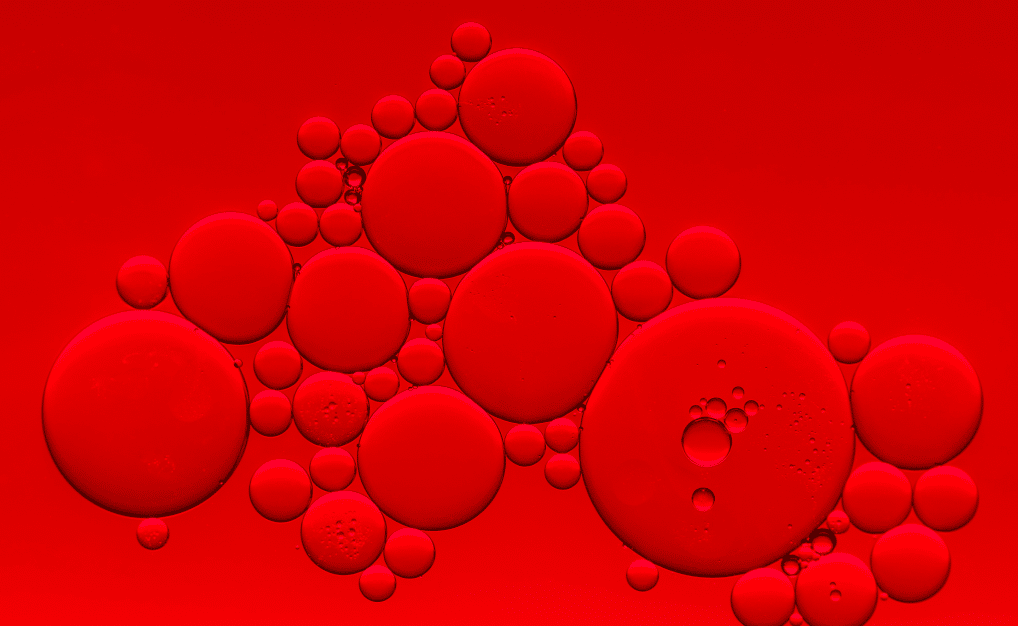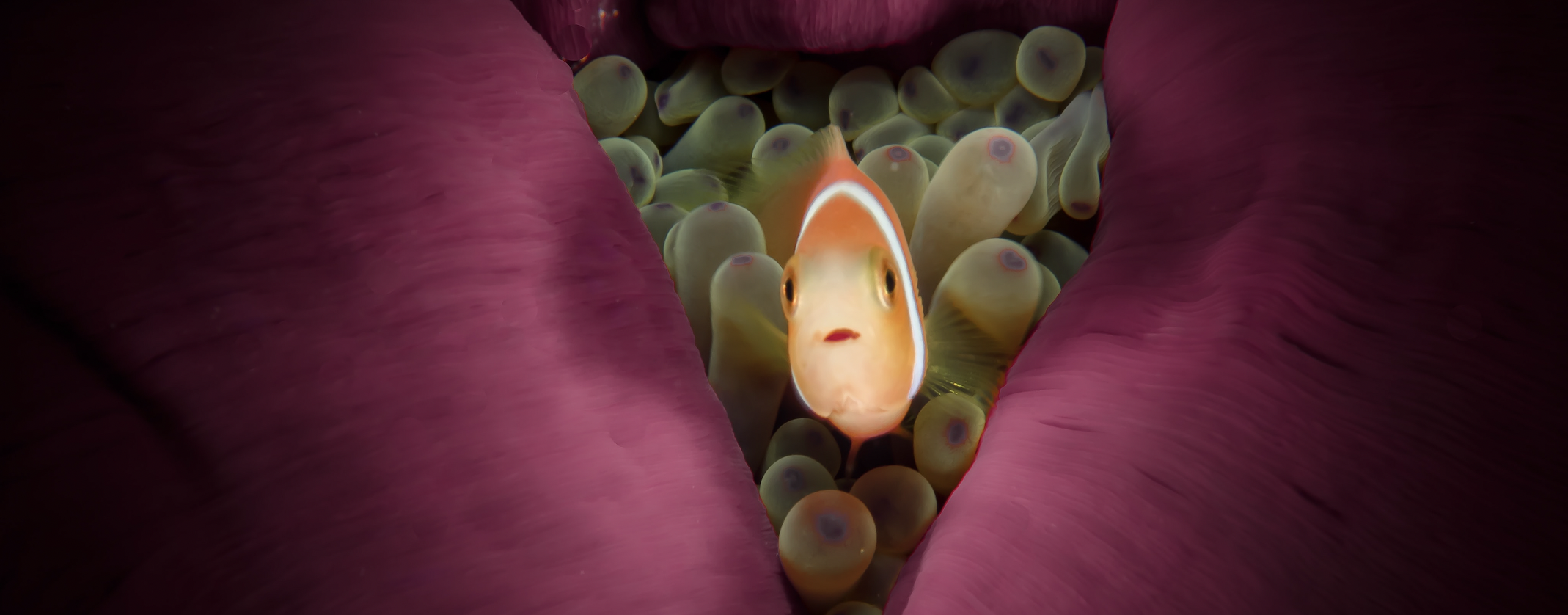

Knowledge
Female hormones: What you need to know about reproductive hormones, the menstrual cycle, and fertility
When you’re struggling with fertility, one of the first places to look is your hormones. Certain vital reproductive hormones are in charge of regulating the menstrual cycle (and ovulation) preparing the body for pregnancy.
The most important hormones to be aware of are: estrogen, progesterone, follicle-stimulating hormone (FSH), and luteinizing hormone (LH). These hormones work together in harmony to help your reproductive system function as it’s meant to.
Let’s take a closer look at each of these hormones and the role they play in the menstrual cycle, perimenopause, and infertility to give you a solid understanding of what’s going on inside your body. We’ll wrap up with some tips on things you can do to promote hormonal balance, so be sure to read through to the end!
What happens to your female hormones throughout your menstrual cycle?
1. Follicular phase (days 1-14*)
During the first two weeks or so of your cycle, estrogen and follicle-stimulating hormone are the major players in center stage. Inside your ovaries, the developing follicles (fluid-filled sacs containing immature eggs, or oocytes) produce estrogen, which helps the follicles to mature and grow.
Estrogen also starts thickening the lining of your uterus (called the endometrium) to prepare your womb for potential pregnancy, in case an egg gets fertilized by sperm.
Follicle-stimulating hormone (FSH) gets released by the pituitary gland, a gland at the base of your brain about the size of a pea. Rising FSH stimulates the development of the follicles.
2. Ovulation (around day 14*)
A surge in luteinizing hormone (LH) in the middle of your cycle triggers the dominant follicle to release a mature egg, which is ovulation.
3. Luteal phase (days 15-28*)
After ovulation comes the luteal phase, the final phase of the menstrual cycle. The follicle that released the egg transforms into a structure called the corpus luteum, which secretes progesterone.
Progesterone is key to preparing the lining of the uterus for an embryo (fertilized egg) to implant by making it thicker. This hormone also prevents any other eggs from getting released by the ovaries in the same cycle.
If no egg gets fertilized by sperm or a fertilized egg doesn’t implant in the womb, the corpus luteum will break down. This process decreases estrogen and progesterone levels and triggers the uterine lining to shed, resulting in menstruation. On the first day of menstruation, the cycle begins anew.
*The days of the menstrual cycle phases are based on a typical 28-day cycle. But we are all different and your cycle may change month to month. So the exact timings of these phases for you may differ.
What changes occur in your hormones during perimenopause?
Perimenopause is the period leading up to menopause when significant hormonal and biological changes take place in the reproductive system.
The transition usually starts in the 40s, but it can also happen earlier or later. During perimenopause, levels of estrogen, progesterone, and other female hormones fluctuate.
Overall, estrogen gradually declines. Large fluctuations in estrogen levels during perimenopause can lead to irregular menstrual cycles, which is common at this time. Because of the key role estrogen plays in maintaining bone density, declining levels can increase the chance of bone loss and osteoporosis in women.
Progesterone levels also decline during perimenopause. The ovaries produce less progesterone as the number of ovarian follicles goes down. This can result in changes in the menstrual cycle, including irregular periods.
As these hormones are in flux, women can experience a variety of symptoms like hot flashes, night sweats, mood swings, sleep disturbances, vaginal dryness, and changes in libido.
But estrogen and progesterone aren’t the only female hormones at play here. FSH levels tend to increase during perimenopause, as the ovaries become less responsive to its signals. Elevated FSH is often used as a marker of the transition into menopause. LH levels may also go up.
Finally, ovulation becomes irregular during perimenopause. There may be some menstrual cycles where ovulation doesn’t happen, which is known as anovulation and can contribute the menstrual cycle irregularity.
What role do hormones play in infertility?
Disruptions in reproductive hormone levels is a common cause of fertility problems. Here are the most prevalent conditions when it comes to hormones and infertility:
1. Polycystic ovary syndrome (PCOS)
PCOS is the most common hormonal condition affecting women globally. As many as 15% of women around the world have this hormonal imbalance.
- Hormonal imbalance: In PCOS, LH levels are high compared to FSH. Androgen hormones (male hormones) are elevated too, and women commonly have insulin resistance.
- Impact on fertility: Ovulation can be irregular or not happen at all in some cycles (anovulation), which makes getting pregnant challenging. This occurs because the imbalance of hormones affects the development and release of eggs from the ovaries.
2. Hypothalamic amenorrhea
Amenorrhea is the term for missing your period.
- Hormonal imbalance: In hypothalamic amenorrhea, levels of GnRH (gonadotropin-releasing hormone) are low, which leads to low FSH, LH, and estrogen.
- Impact on fertility: The imbalance of female hormones disrupts the cycle and interferes with ovulation by suppressing the functioning of the ovaries. Amenorrhea is often associated with factors like excessive exercise, low body weight, or stress.
3. Primary ovarian insufficiency (POI)
Primary ovarian insufficiency means that the ovaries stop working normally before the age of 40, which is typically when perimenopause begins.
- Hormonal imbalance: POI is characterized by low estrogen and high FSH.
- Impact on fertility: Due to the decreased function of the ovaries in POI, the ovarian reserve (eggs remaining in the ovaries) becomes depleted earlier than normal. This leads to infertility or subfertility.
4. Diminished ovarian reserve (DOR)
Your ovarian reserve refers to the number of eggs remaining inside your ovaries, which goes down naturally with age. Diminished ovarian reserve means that the majority of the eggs have been used up.
- Hormonal imbalance: Anti-Mullerian hormone (AMH) is low and FSH is high.
- Impact on fertility: As the egg reserve goes down, the chances of getting pregnant do too. Diminished ovarian reserve may also signal reduced egg quality (something else that happens naturally with age), which affects fertility as well.
5. Estrogen deficiency
When just estrogen is low, it’s known as estrogen deficiency.
- Hormonal imbalance: Estrogen levels are low, while other levels of reproductive hormones are regular.
- Impact on fertility: Not having enough estrogen in the body can lead to thinning of the uterine lining, making the uterus less receptive to the successful implantation of a fertilized egg.
6. Luteal phase defect (LPD)
Luteal phase defect refers to an irregularity that occurs in the final phase of the menstrual cycle.
- Hormonal imbalance: Luteal phase defect happens due to low progesterone production after ovulation, when it should be rising to prepare the uterus for potential pregnancy.
- Impact on fertility: When progesterone is too low, the luteal phase can become too short, which can affect the likelihood that a fertilized egg will implant. It can also influence the survival of the fetus in the early stages of pregnancy.
Lifestyle changes you can make to promote hormonal balance and fertility
While your hormonal levels aren’t completely in your control, there are several things you can do to help promote hormonal balance – whether you’re looking to boost your chances of pregnancy, get your menstrual cycle back on track, or manage a hormonal imbalance.
How the body reacts may differ from person, but in general, leading a healthy lifestyle, eating well, and managing stress levels, helps to support hormonal health and your overall well-being.
1. Eat a balanced diet and get regular exercise
- Eat a well-balanced fertility diet that includes a variety of whole foods, such as fruits, vegetables, whole grains, lean proteins, and healthy fats.
- Ensure you’re getting enough essential nutrients, including vitamins and minerals crucial for hormonal function, such as vitamin D, vitamin B, zinc, and omega-3 fatty acids.
- Stay well-hydrated by drinking water throughout the day. Dehydration can affect overall health and potentially impact hormonal function.
- Reduce your intake of highly processed and sugary foods, as they can contribute to insulin resistance and inflammation.
- Aim for a healthy weight, because being either underweight or overweight can disrupt hormonal balance.
- Move your body regularly with activities like aerobics, strength training, or yoga. Exercising can be beneficial for weight management and overall hormonal health and well-being. It can also help regulate insulin levels.
2. Get adequate sleep and manage stress levels
- Prioritize sufficient and quality sleep. Lack of sleep can disrupt hormonal balance, particularly affecting cortisol, insulin, and growth hormone levels.
- Practice stress-reduction techniques, such as meditation, deep breathing exercises, yoga, or mindfulness. Chronic stress can lead to elevated cortisol levels, impacting reproductive hormones.
3. Avoid endocrine disruptors
Minimize exposure to endocrine-disrupting chemicals found in certain plastics, pesticides, and household products. These substances can interfere with hormonal signaling, the process by which hormones are produced and released by various endocrine glands into the bloodstream. Endocrine disruptors can block the pathway between a natural hormone and a receptor, cause a gland to produce too much or too little of a hormone, or mimic a hormone, causing a bodily response.
So there you have it – now you’re well versed on the ins and outs of female reproductive hormones, the menstrual cycle phases, and how imbalances can influence fertility. To explore conditions that can affect your chances of pregnancy more in-depth, head to our Diagnoses & Biomarker Lexicon, where you’ll find dozens of medically-reviewed factsheets on fertility.
You might also like...

Female hormones: What you need to know about reproductive hormones, the menstrual cycle, and fertility
When you’re struggling with fertility, one of the first places to look is your hormones. Certain vital reproductive hormones are in charge...
Silvia Hecher
January 17, 2024

Fertility blood test: Why does it need to be cycle days 2-5?
When you test your fertility with LEVY, you will always check your basic reproductive hormone levels (including FSH, LH, TSH, Prolactin, Estradiol,...
Lena
September 8, 2022

Forms of amenorrhea and fertility
Not getting your period is a condition called amenorrhea. It’s important for fertility because not having a menstrual cycle with monthly ovulation...
Lena
January 18, 2022

Fertility Foods for Women to Help You Get Pregnant Faster
How you nourish your body is key not only when you have a baby in your belly, but also to help prepare...
Kayla
March 22, 2022

10 Reasons IVF can fail and What to Do Next
Why IVF fail: Although in-vitro fertilization (IVF) can help many people who weren’t able to conceive naturally have a child, there’s unfortunately...
Lena
March 2, 2023

Iron: The secret ingredient for fertility?
Getting your daily recommended amount of vitamins and minerals is key to getting pregnant and having a healthy pregnancy. So, how does...
Lena
November 30, 2022

What your AMH levels can tell you about fertility
FSH, LH, estrogen, progesterone… If you’re struggling to have a baby, you’re probably becoming an expert on all things hormones. AMH is...
Lena
August 25, 2022

6 Interesting Facts About Ovaries You Might Not Know
Women have two ovaries which are located on either side of the uterus. They’re around 3-5 cm long – about the size...
Kayla
April 20, 2022

What to expect when testing your fertility with LEVY
If you’ve been trying to conceive for a while, it’s totally normal to feel frustrated. Why hasn’t it happened for you yet,...
Kayla
February 3, 2022




